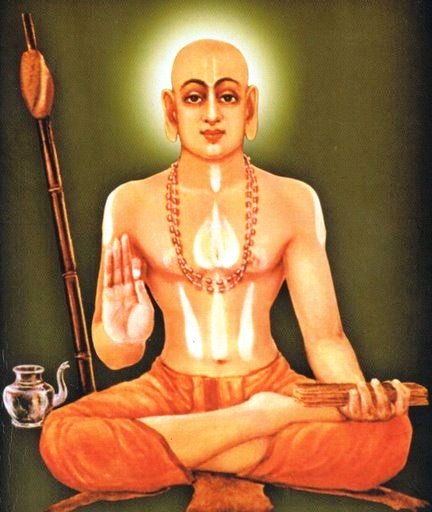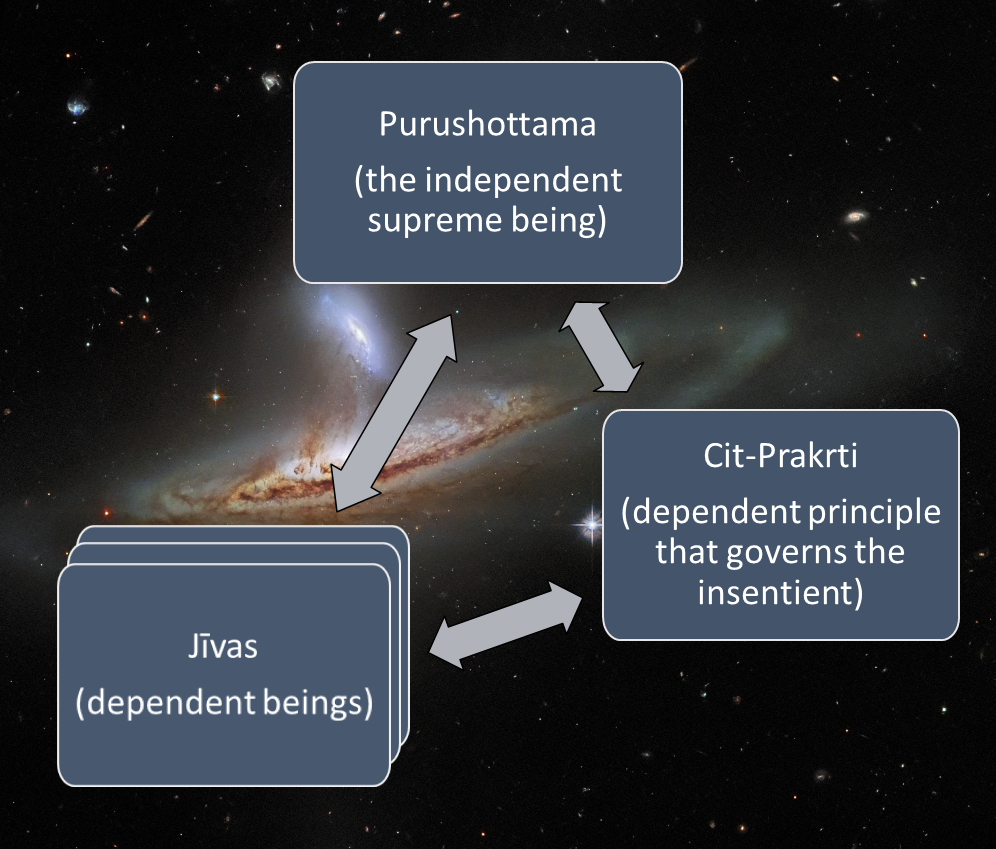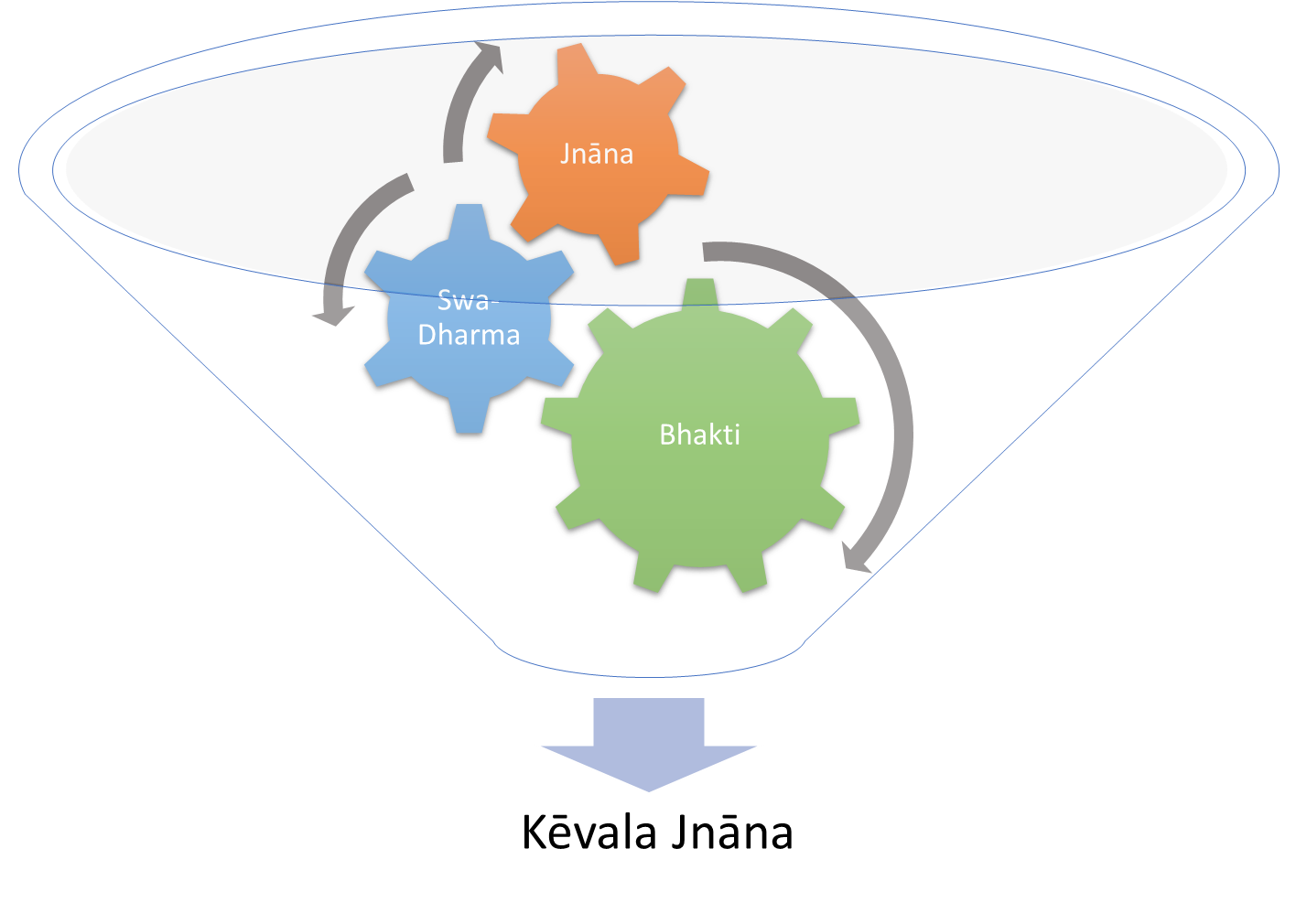Continuous stream of dependent living beings, infinite in number, are struggling, submerged in their ignorance. The all-knowing, all-powerful, and all-pervading Lord is perpetually engaged in the cycle of creation, maintenance, and destruction of the universe for the benevolence of these living beings. It is an opportunity for the distressed beings to evolve, to get liberated, to experience ultimate joy. The 'Cit-Prakrti', the mother, governess of the insentient universe, is ever eager to please the Lord, is ceaselessly striving to emancipate her cherished children.
The beings, for their part, are ignorant and fail to recognize their dependent state. With their false ego, they want to control and own, and they suffer.
नारायणाय परिपूर्णगुणार्णवाय विश्वोदयस्थितिलयोन्नियति प्रदाय।
ज्ञानप्रदाय विबुधासुरसौख्यदुःखसत्कारणाय वितताय नमो नमस्ते॥
That all pervading lord, Nārāyana in complete with all auspicious qualities. He administers the creation, sustenance and destruction of the universe. He provides knowledge by granting happiness to benevolent acts and misery to demomoniac acts. I worship such a Lord.
- opening verse, Madhva's purport on Mahābharata.
Your path to ultimate bliss is simple! It is to realize that you are the reflected image of the Lord, to realize you are eternal and eternally dependent on Him, to realize his presence within you and everywhere else, to realize you are His! That is the true state of all living beings.
Mother Prakrti is determined to mentor and nurture you, so that you realize your true state and experience that eternal bliss. You are rewarded with happiness for every act of benevolence and misery for every act of ill-will, with knowledge as the outcome. Universe is designed to take you on a journey, from ignorance to a more profound awareness, ending with transcendental knowledge, kēvala-jnāna. The kēvala-jnāna allows you to comprehend your ever dependent nature and the infinite benevolence bestowed on you by the Lord. It breeds unconditional devotion, bhakti, towards the Lord. It culminates in your liberation, an experience of ultimate bliss.



